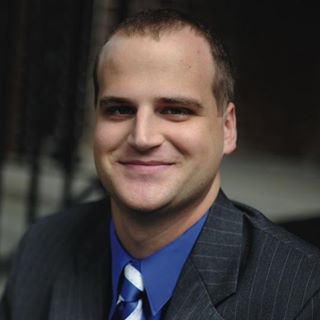Marquette University dean of undergraduate admissions named president-elect of National Catholic College Admission Association
Troyer to serve as ‘president-elect’ for 2024-25 academic year, president in 2025-26
MILWAUKEE — Brian Troyer, dean of undergraduate admissions at Marquette University, has been elected to serve as president of the National Catholic College Admission Association for the 2025-26 academic year and will spend the 2024-25 year as president-elect. The appointment began with the National CCAA membership meeting in January.
The National CCAA is a nonprofit organization of Catholic colleges and universities committed to promoting the value of Catholic higher education and to serving students, parents and counselors. Troyer is coming off a yearlong tenure as secretary on the NCCAA Board of Directors. After serving as president, he will spend the 2026-27 academic year as past-president.
“Brian’s leadership has been instrumental in the university’s successful enrollment strategies-particularly amid a period of recruitment challenges facing the higher education industry as a whole,” said Dr. John Baworowsky, vice president for enrollment management. “He uses a keen, data-based approach and impressive creativity, along with a talent for teambuilding, to shape incoming first-year classes that continue to exceed expectations in terms of academic excellence and diversity.”
The board of directors serves to further the mission of the National CCAA, promoting the value of Catholic higher education and serving students, parents and counselors. In addition to the executive director of the National CCAA, the board is composed of admission and enrollment leaders from member institutions and secondary school counselors from Catholic high schools.
Troyer was named dean of undergraduate admissions in 2016 and has overseen undergraduate admissions during a critical time in higher education.
The diversity of the class is noteworthy, as more than 33% of the fall 2023 class identifies as a student of color, the second-straight year that figure has seen a greater than 4% increase. True to the university’s Catholic, Jesuit mission and heritage, first-generation students make up over 23% of the incoming class, and 161 students hail from Jesuit high schools. Importantly, Marquette furthered its commitment to academic excellence; the incoming class boasted an increase inaverage GPA. This average has increased again in the Fall 2024 admit pool, as have the average ACT and SAT scores for applicants who chose to submit them.
About Marquette University
Marquette University is a Catholic, Jesuit university located near the heart of downtown Milwaukee that offers a comprehensive range of majors in 11 nationally and internationally recognized colleges and schools. Through the formation of hearts and minds, Marquette prepares our 11,100 undergraduate, graduate, doctoral and professional students to lead, excel and serve as agents of positive change. And, we deliver results. Ranked in the top 20% of national universities, Marquette is recognized for its undergraduate teaching, innovation and career preparation as the sixth-best university in the country for job placement. Our focus on student success and immersive, personalized learning experiences encourages students to think critically and engage with the world around them. When students graduate with a Marquette degree, they are truly prepared and called to Be The Difference.
NOTE: This press release was submitted to Urban Milwaukee and was not written by an Urban Milwaukee writer. While it is believed to be reliable, Urban Milwaukee does not guarantee its accuracy or completeness.
Mentioned in This Press Release
Recent Press Releases by Marquette University
New Marquette Law School Poll finds large majority of Wisconsin voters not yet tuned in to who is running in major 2026 elections
Oct 29th, 2025 by Marquette UniversityNo candidate has established strong position in public favorability in governor, state Supreme Court races; large majorities of voters undecided
New Marquette Law School National Survey Finds Large Majority Think Political Violence is a Big Problem, But With Sharp Partisan Differences
Oct 1st, 2025 by Marquette UniversityAmericans are overall pessimistic on reducing intense political conflict; half of those polled say heated language by leaders makes violence more likely























